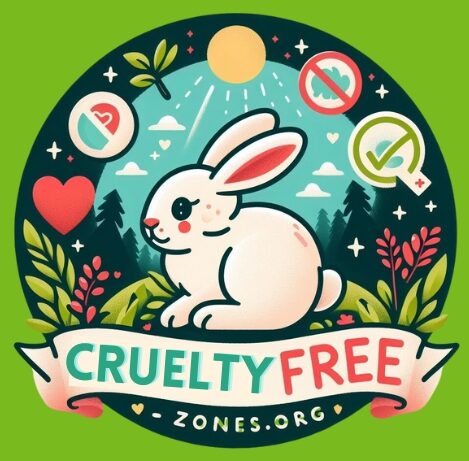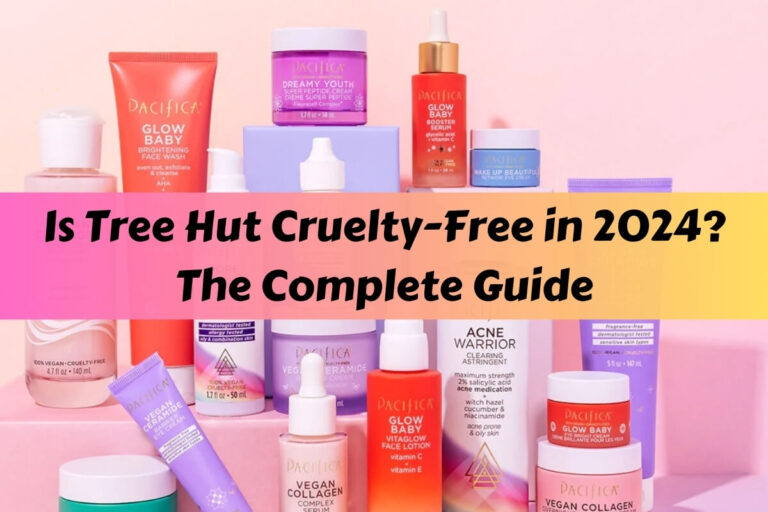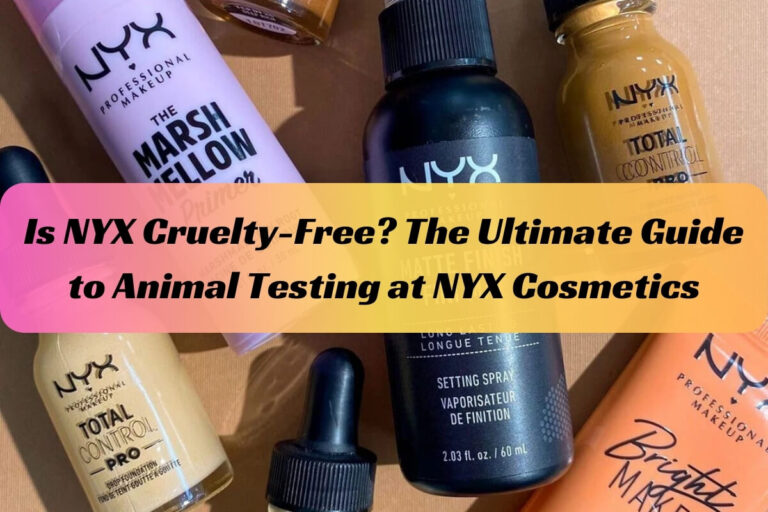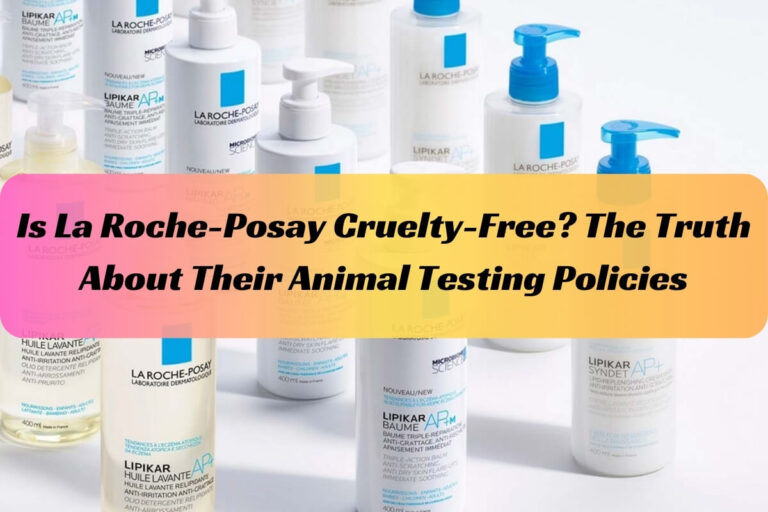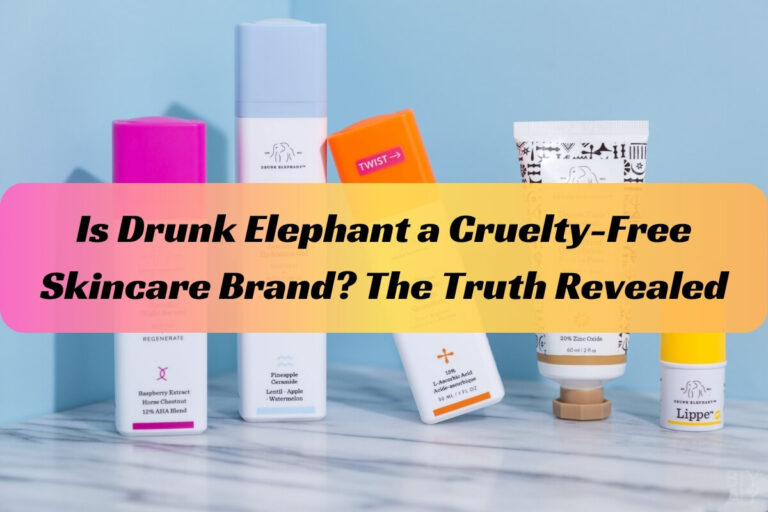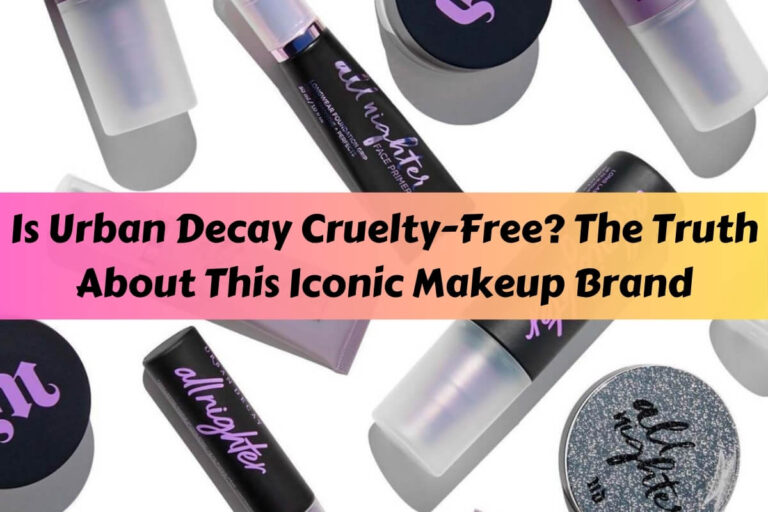Is Vaseline Cruelty-Free? The Truth About Animal Testing and Vegan Status
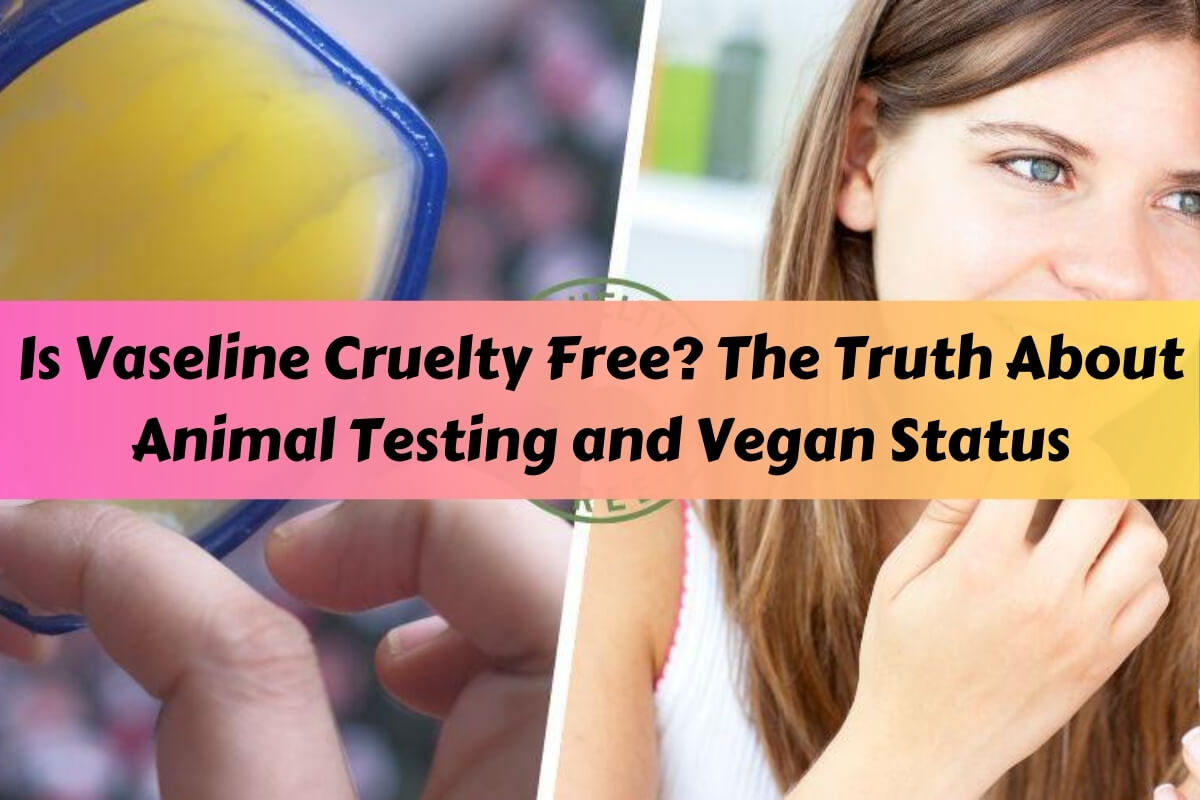
For decades, Vaseline has been a trusted household staple for everything from moisturizing dry skin to soothing minor cuts and burns. Its iconic petroleum jelly has become a beauty cabinet essential in homes across the globe. However, as more consumers prioritize cruelty-free and vegan products, concerns have arisen about Vaseline’s ethical practices and ingredients.
Is Vaseline cruelty-free and vegan? Unfortunately, based on the available information, Vaseline and its product lines cannot be considered truly cruelty-free or vegan. While the classic Petroleum Jelly may be vegan, many of its other products contain animal-derived ingredients, and its parent company Unilever allows animal testing in certain situations.
In this comprehensive guide, we’ll explore the facts about Vaseline:
- Animal testing policies
- Product ingredients, including vegan and non-vegan sources
- Environmental impact and sustainability concerns
- Cruelty-free and vegan certification status
- Viable plant-based and ethical alternatives
By the end, you’ll have a clear understanding of whether Vaseline aligns with your cruelty-free and vegan values, enabling you to make an informed choice.
What Does It Mean to Be Cruelty-Free and Vegan?
Before diving into Vaseline’s specifics, it’s crucial to understand the definitions of “cruelty-free” and “vegan” in the context of beauty and personal care products.
Cruelty-free refers to products and their ingredients not being tested on animals at any stage of development or production. This includes testing done by the brand itself, its suppliers, or any third parties involved.
Vegan means that a product contains no animal-derived ingredients whatsoever. This includes obvious sources like honey, beeswax, lanolin, and carmine, as well as less apparent ones like glycerin, which can be plant-based or derived from animal fats.
Reputable third-party organizations like Leaping Bunny and PETA offer cruelty-free certifications, while the Vegan Society provides a Vegan Trademark to brands meeting their stringent standards. These certifications offer consumers peace of mind and a way to identify genuinely cruelty-free and vegan products easily.
Vaseline’s Animal Testing Policy
One of the most crucial factors in determining a brand’s cruelty-free status is its animal testing policy. Unfortunately, Vaseline itself does not have a clearly defined public policy regarding animal testing.
Unilever, the parent company of Ponds, states on its website that it does not test products on animals and is committed to ending animal testing.
However, Unilever also acknowledges that “occasionally, across our wider product portfolio, some of the ingredients we use have to be tested by our suppliers to comply with legal and regulatory requirements in some markets; and some governments still test certain products on animals as part of their regulations.”
This caveat essentially means that while Unilever may not directly test on animals, it allows its suppliers and third parties to conduct animal testing on ingredients or products when legally mandated. This is a common loophole used by companies to claim they are “cruelty-free” while still benefiting from animal testing in certain markets.
Notably, Vaseline is not certified as cruelty-free by any major third-party organizations like Leaping Bunny or PETA. These certifications are considered the gold standard for verifying a brand’s cruelty-free claims.
Is Vaseline’s Original Petroleum Jelly Vegan?
The classic Vaseline Petroleum Jelly, the brand’s flagship product, contains only one ingredient: petroleum jelly (also known as petrolatum). Petrolatum is a semi-solid mixture of hydrocarbons derived from petroleum, making it vegan by default.
Petrolatum is vegan, but its production contributes to pollution, habitat destruction, and climate change due to resource-intensive extraction and refining processes.
Petrolatum is considered safe for topical use, but some studies suggest potential contamination with carcinogenic PAHs. Vaseline uses highly refined petrolatum that meets FDA safety standards, but the debate around its long-term effects continues.
Vaseline’s Other Products – Vegan or Not?
While the original Petroleum Jelly may be vegan, Vaseline offers a wide range of other products, including lotions, lip balms, and skincare items. Unfortunately, the brand does not provide clear information on the vegan status of these products or a comprehensive ingredient list.
A closer look at some of their product ingredient lists reveals the potential use of animal-derived components like:
- Keratin: A protein typically sourced from animal hair, feathers, or horns, used in hair and nail care products.
- Glycerin: While glycerin can be plant-derived, it is also commonly obtained from animal fats in many personal care products.
- Stearic acid: Another ingredient that can come from both plant and animal sources, often used as an emulsifier or hardening agent.
Without transparent labeling or vegan certifications, it’s challenging to determine which Vaseline products are genuinely vegan. The lack of clear information is a significant concern for consumers seeking ethical and cruelty-free alternatives.
Is Petroleum Jelly Eco-Friendly and Sustainable?
Beyond the cruelty-free and vegan considerations, petroleum jelly’s environmental impact is another crucial factor to evaluate. As a byproduct of the petroleum industry, petrolatum has several sustainability concerns.
First and foremost, the extraction and refining of crude oil, the source of petroleum jelly, are highly resource-intensive processes that contribute to greenhouse gas emissions, water pollution, and habitat destruction. The oil industry’s environmental footprint is well-documented and a subject of ongoing debate.
Petroleum jelly does not biodegrade, so it can harm ecosystems and wildlife if not disposed of properly.
For consumers seeking eco-friendly and sustainable options, petroleum-based products like Vaseline may not align with their values, regardless of their vegan or cruelty-free status.
Does Vaseline Sell Its Products in China?
Another factor that impacts a brand’s cruelty-free status is whether it sells its products in mainland China. Until recently, China had strict laws mandating animal testing for most cosmetics and personal care products sold within its borders, regardless of the brand’s policies.
Vaseline’s parent company Unilever sells in China and allows animal testing when required by law, so some Vaseline products are likely tested on animals to comply with Chinese rules.
In 2023, China announced plans to remove mandatory animal testing for most cosmetics, providing a pathway for cruelty-free brands to enter the market ethically. However, the transition is still ongoing, and certain products or claims may still trigger animal testing requirements.
Until Vaseline or Unilever provides transparency about their practices in China, consumers have no way to verify whether their products are genuinely cruelty-free across all markets.
Vaseline is not a cruelty-free or vegan brand. Their parent company Unilever allows animal testing and many products contain animal-derived ingredients. Vaseline’s lack of transparency and certifications raises concerns.
Cruelty-Free and Vegan Alternatives to Vaseline
If you’re seeking cruelty-free, vegan, and environmentally-friendly alternatives to Vaseline, there are plenty of excellent options available. Many plant-based oils and butter can provide similar moisturizing and protective benefits without the ethical concerns associated with petroleum jelly.
Coconut Oil
Coconut oil is a versatile and nourishing option that can be used for everything from moisturizing dry skin to conditioning hair. It’s rich in fatty acids and has natural antimicrobial properties, making it an effective alternative to petroleum jelly for minor cuts and abrasions.
Shea Butter
Derived from the nuts of the African shea tree, shea butter is a deeply moisturizing and emollient plant butter. It’s often used in lip balms, lotions, and salves to soothe dry, cracked skin and seal in hydration.
Cocoa Butter
Like shea butter, cocoa butter is a rich, plant-based butter that melts on contact with the skin, providing intense hydration and protective benefits. Derived from cocoa beans, it’s a popular ingredient in lip balms, lotions, and salves, offering a creamy texture and a subtle chocolate aroma.
Jojoba Oil
Jojoba oil is a liquid wax extracted from the jojoba plant, native to parts of North America. It mimics the skin’s natural sebum, making it an excellent moisturizer that absorbs easily without leaving a greasy residue. Jojoba oil is also rich in vitamins and antioxidants, promoting skin healing and rejuvenation.
Other Plant-Based Oils and Butters
Beyond these popular options, various other plant-based oils and butters can serve as ethical and sustainable alternatives to petroleum jelly, including:
- Avocado oil
- Rosehip seed oil
- Almond oil
- Sunflower seed oil
- Castor oil
- Mango butter
- And many more!
These natural, vegan-friendly ingredients offer nourishing and protective benefits without the environmental and ethical concerns associated with petroleum-based products. Many cruelty-free and vegan brands have developed innovative formulations using these plant-derived ingredients, providing conscientious consumers with an array of choices.
Conclusion
In conclusion, while Vaseline has been a beloved household staple for generations, its cruelty-free and vegan status remains questionable. The brand’s lack of transparency, combined with its parent company Unilever’s admission of allowing animal testing in certain situations, raises valid concerns for consumers seeking ethical and sustainable products.
Petrolatum’s environmental impact is a concern as the oil industry contributes to pollution, habitat destruction, and climate change.
Fortunately, the rise of conscious consumerism has led to a wealth of cruelty-free, vegan, and eco-friendly alternatives to Vaseline, ranging from coconut oil and shea butter to jojoba oil and other plant-based oils and butter. These natural ingredients not only align with ethical values but also offer nourishing and protective benefits for skin, hair, and overall well-being.
The choice to use Vaseline or cruelty-free/vegan alternatives depends on personal values. Informed consumers can drive positive change in the industry by making conscious decisions.
